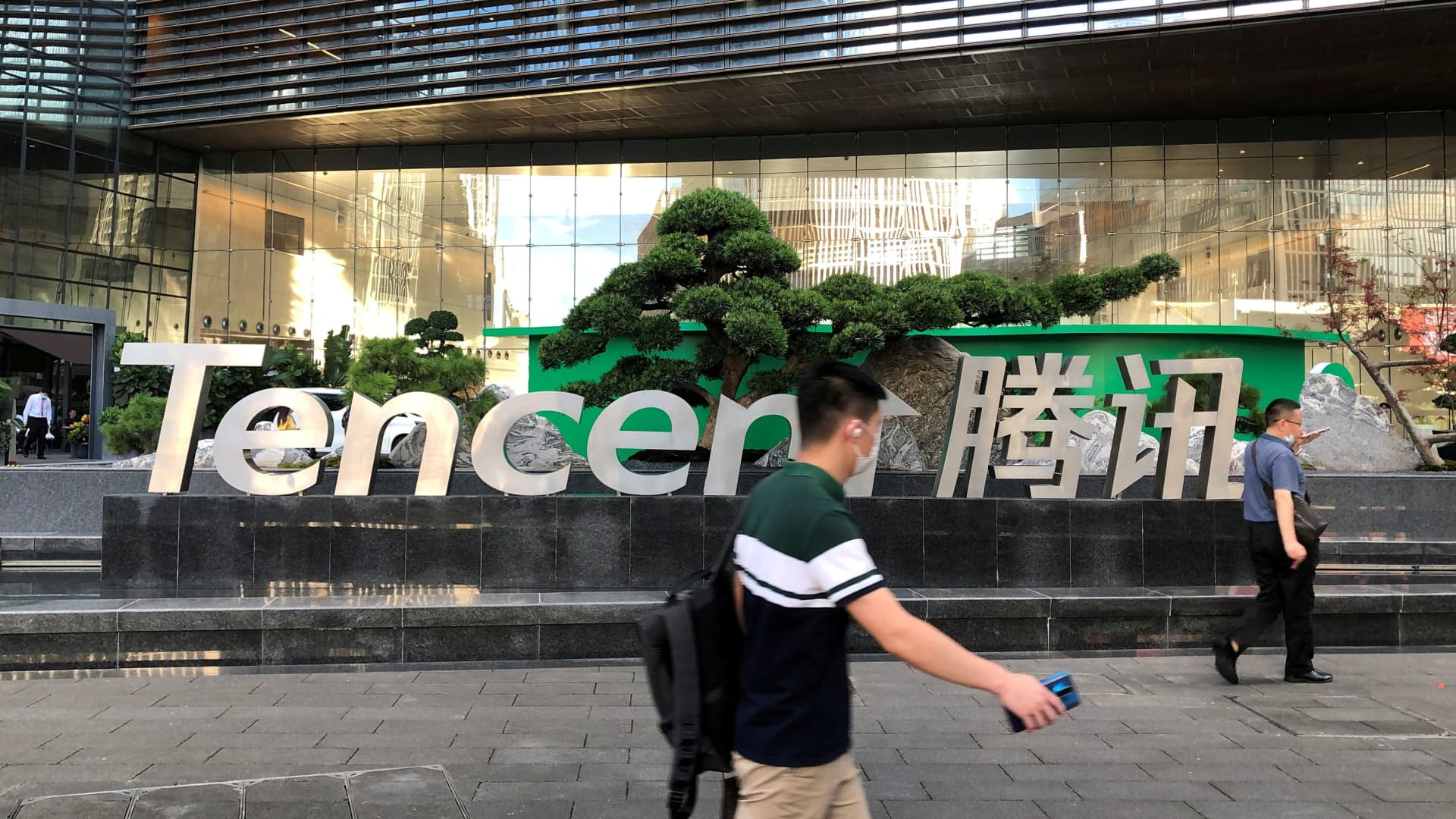Chinese internet tech companies Alibaba , Tencent and Baidu have reported solid quarterly earnings this month with little to show for it in market performance. Tencent has fallen for four weeks in a row. Alibaba and Baidu closed the week higher in U.S. trading after three straight weeks of declines – still not enough to recover losses of more than 10% for the month so far. All three stocks have double-digit gains ahead of them, if the average FactSet analyst price target holds true. Current sentiment isn’t helping. Worries about spillover from China’s worsening property market troubles in the absence of forceful stimulus are fueling headline uncertainty about future growth. But Gavekal’s CEO and founding partner Louis-Vincent Gave points out that even here, the market is telling a more moderate story, with Chinese bank stocks holding a positive 200-day moving average trend. “When we see bank shares break out to new lows, it is usually a signal that investors should head for the exit as quickly as possible,” he said, noting that was the case in 2007 to 2008 in the U.S., and in the 2010 to 2011 period in Europe. But Chinese bank stocks haven’t broken a low from October, while U.S. regional banks have had two massive sell-offs in the last five years, he said. Still, economists’ China GDP forecasts have come down. UBS analysts cut their estimate to around 4.8%, down from slightly above 5% previously. “We continue to expect property-related measures to be rolled out in the next few weeks, which would be crucial in reviving economic recovery and restoring market confidence,” the firm’s investment strategists said in a report Wednesday. “With an expected sequential recovery in fundamentals on the horizon, as well as a heightened sensitivity to any expected policy rollout, we continue to prefer the internet sector, especially e-commerce names, as a direct recovery beneficiary,” the UBS strategists said, noting the stocks are trading at low price-to-earnings multiples. Alibaba beat on both the top and bottom lines, sending the average sell-side price target up the next day by 0.8% to $136.83, according to FactSet. Baidu also topped expectations. The average price target rose by 1.1% to $178.52, according to FactSet. Tencent missed, with slower-than-expected revenue growth . The average price target edged down by 0.3% to 441.67 Hong Kong dollars, according to FactSet. However, Barclays China tech analyst Jiong Shao and team said Tencent’s potential is underappreciated. They upgraded the stock to overweight on Aug. 17, a day after the earnings release. “We believe Tencent is firing on all cylinders, and its recent strong growth should continue even if the broader economy is a tad weaker than expected,” the report said. Second-quarter results also showed new growth trends in e-commerce and gaming for some companies. Livestreaming and video app Kuaishou beat on both the top and bottom line, with analysts subsequently raising their price target by an average of 2.6% to 85.60 Hong Kong dollars, according to FactSet. Nomura raised its price target by 10 Hong Kong dollars to a below-average 72 Hong Kong dollars. That’s 10% above where Kuaishou closed Friday. Analyst Jialong Shi said that despite an increase in daily active users, daily time spent per user fell amid a highly competitive environment in which ByteDance’s Douyin remains resilient and Tencent’s WeChat Video Accounts is growing quickly. NetEase , a growing gaming rival to Tencent, reported Thursday a quarterly earnings beat but a miss on revenue. Still, the average price target rose by 2.4% to $118.90 a share, according to FactSet. Morgan Stanley this week also added NetEase to its China/Hong Kong Focus list on expectations the company continues to “deliver a number of blockbuster game titles in the next 6-12 months.” One game obtained a domestic license in June, while international versions of other games can also boost business, according to China Internet Analyst Alex Poon. The report did not disclose a price target, but noted NetEase has nearly 27% upside as of Wednesday to the firm’s target. Such double-digit gains are not out of reach if sentiment on China’s policy and economy recover. KraneShares CSI China Internet ETF (KWEB) gained nearly 19% last month. But it is on pace for losses of more than 10% this month. In the near term, Loop Capital Managing Director Rob Sanderson captured the mood well in an Aug. 22 note about Baidu: “Will (solid earnings) change investor opinion? No. Views will likely remain mixed with overall investor sentiment leaning more negative. We think breakthroughs in monetization of Baidu’s AI businesses (AI cloud, robotaxis, intelligent driving solutions) will tip sentiment more positive, but this was not the quarter for breakthroughs. “We expect the stock will remain volatile in the near term along with China internet peers on macro uncertainty,” the report said. Loop has a $210 price target on Baidu, more than 50% above where shares closed on Friday. — CNBC’s Michael Bloom contributed to this report.
This website uses cookies so that we can provide you with the best user experience possible. Cookie information is stored in your browser and performs functions such as recognising you when you return to our website and helping our team to understand which sections of the website you find most interesting and useful.





















Discussion about this post